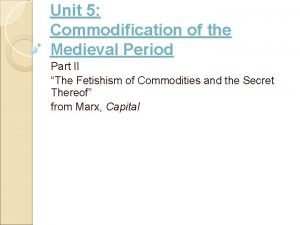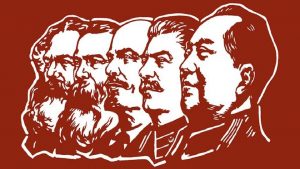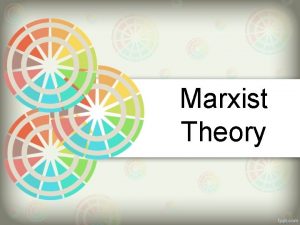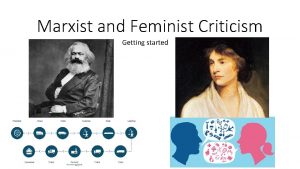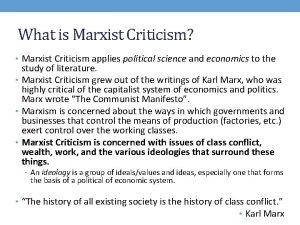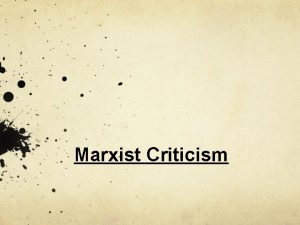Critical Theory n Marxist Criticism Economic DeterministMarxist Criticism





- Slides: 5

Critical Theory n. Marxist Criticism

Economic Determinist/Marxist Criticism n Karl Marx (1818 -1883) emphasized that the primary influence on life was economic, and he saw society as an opposition between the capitalists and the working class.

Marxist Criticism n Emphasize the role of class (social and economic standing) and ideology (main underlying principles) as they reflect, promote, and sometimes challenge the prevailing social order. They often focus how those in power seek to maintain that power, in part by justifying it through art and literature. They also focus on the struggle that exists between the working class and the ruling (elite) class.

Economic Determinist/Marxist Criticism n The literature that emerged from this kind of analysis focuses on individuals in the grips of a class struggle. n It emphasizes persons of the lower class and their constant oppression by the upper class. n The poor may try to escape their situation but ultimately fall back under the ruthless dominion of the capitalist oppressor.

Economic Determinist/Marxist Critical Questions What is the economic situation of the characters, and what happens to them as a result of this status? 2. To what extent are the lives of characters influenced or determined by social (i. e. how an individual is expected to behave in a given circumstance), political (i. e. the directives of the state), and economic (i. e. the interplay between production, supply, and demand) forces? 3. What social forces and institutions are represented in the work? 4. To what extent does the work overlook the economic, social, and political implications of its material? 1.

